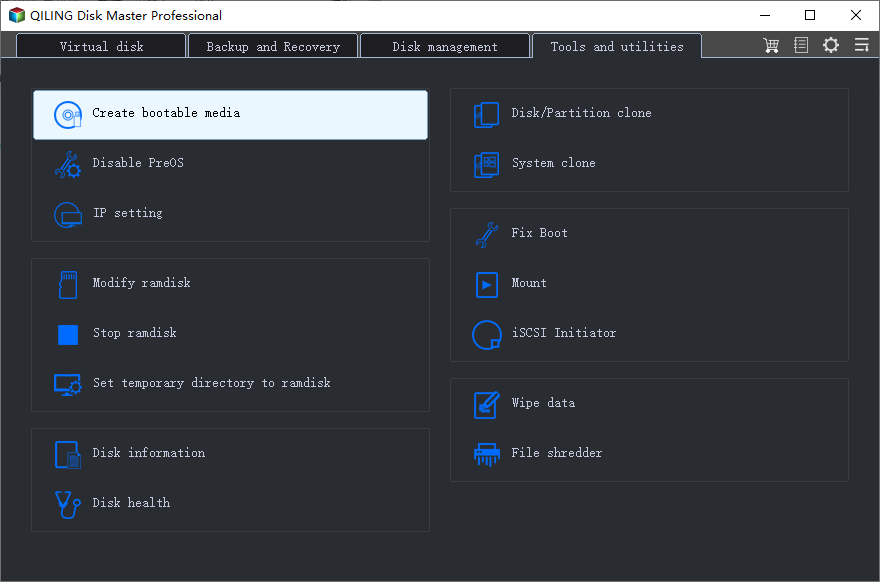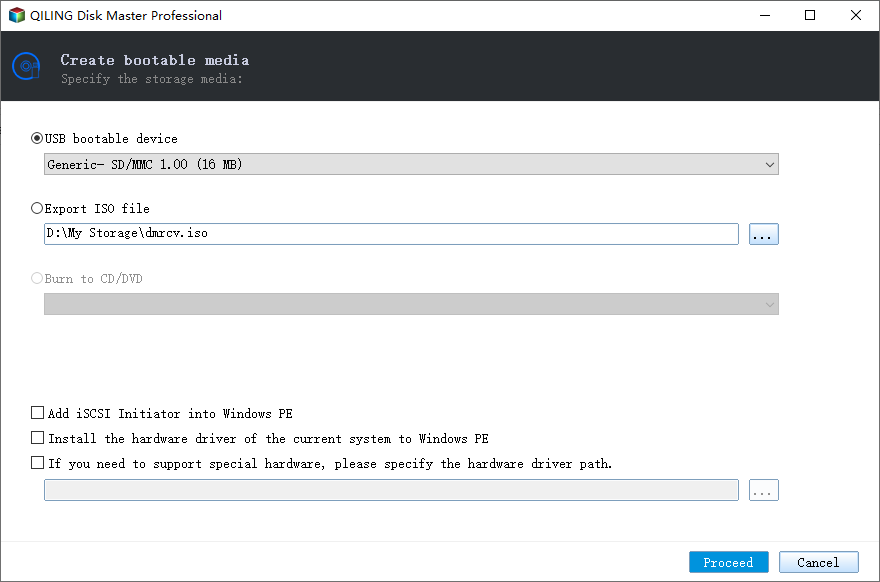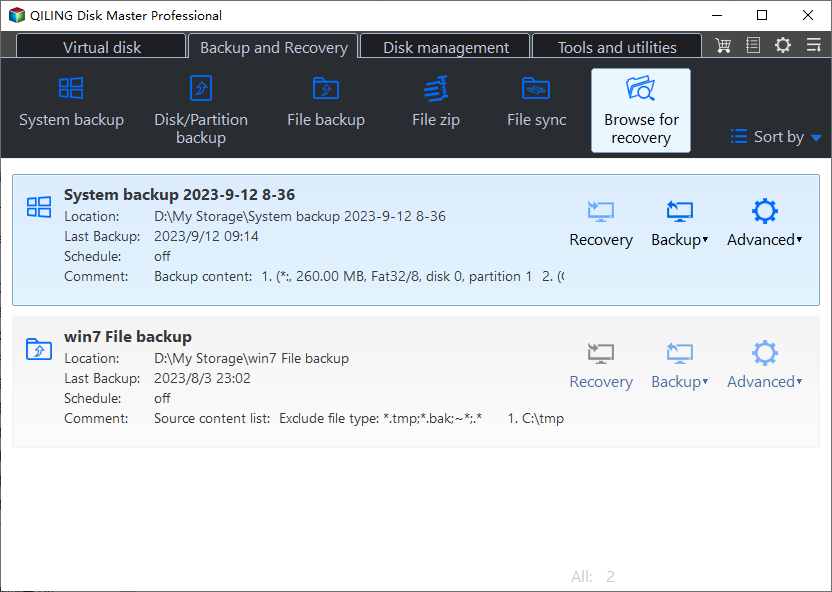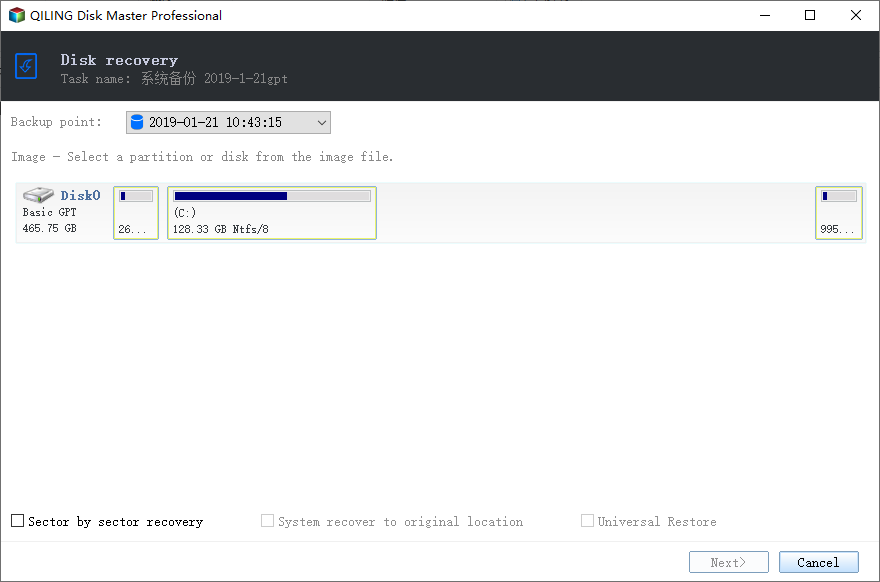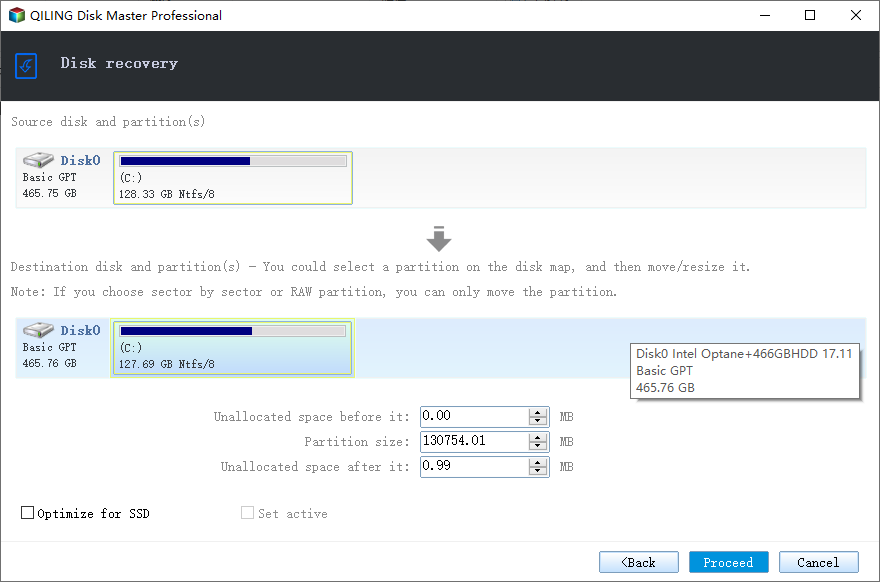Top 2 Ways to Do Offline System Restore If system boot failed
Quick Navigation:
- The Case
- About Offline System Restore
- Windows System Restore Software - Qiling Disk Master
- Offline System Restore with Windows Bootable Media
- System Restore Offline with PXE Boot Tool
- The Epilogue
The Case
If you encounter these errors while the computer fails to boot, what should you do to perform offline system restore in Windows 10/8/7? First of all, you should know what is offline system restore.
About Offline System Restore
Are you facing a situation where your Windows PC is unbootable, and you need to restore the system offline? Don't worry; we've got you covered.
Are you experiencing the "System Restore cannot find offline boot volume" error while trying to restore your Windows system? Don't worry; we've got you covered.
Now, it's urgent for you to do Windows 10 offline system restore. Just take it easy, we will show you two ways to perform system restore offline.
Windows System Restore Software - Qiling Disk Master
Are you facing issues with your Windows 10 system and need to perform an offline system restore? Qiling Disk Master Workstaion is here to help. This powerful tool allows you to restore your Windows 10 system to a previous state even when the computer is unbootable.
- Offline system restore with WinPE bootable media
- Offline system restore with PXE Boot Tool
Are you facing system issues and seeking a reliable solution? Qiling Disk Master Workstaion is here to help.
In the following part, we will explain one by one.
Offline System Restore with Windows Bootable Media
Before attempting to restore your system, it's essential to have a reliable backup in place. Qiling Disk Master can help you create a Windows 10 system backup, which you should store on an external hard drive. This will ensure that your system is restored correctly and that you don't lose any important data.
Step 1. Create WinPE bootable USB drive
1. Please connect the USB drive with your computer, make sure it can be detected, and run Qiling Disk Master Workstation, choose Tools > Create Bootable Media subsequently.
2. Choose USB Boot Device, and press Next >> to Proceed WinPE bootable USB drive.
Tip: And you could click Add Drivers at the bottom left corner to add the drivers you need. If you have stored the system backup image on an external hard drive, you might need to add additional drivers to the bootable media.
Step 2. Perform offline system restore in Windows 10
To perform offline system restore in Windows 10, follow these steps:
1. Reboot your computer and enter into BIOS, and change the boot order to set your WinPE bootable USB drive as the first boot device. Then restart your computer to boot from the WinPE bootable media, and then Qiling Disk Master will start automatically.
2. Connect the external hard drive contains the Windows 10 system backup.
3. Select Restore tab, and choose Select Image File to locate the Windows 10 system image.
3. Tick Restore this system backup option, and click Next >>.
4. Choose a destination partition to restore the Windows 10 system files, and click Next >>.
Tip: Before restoring the Windows 10 system files, it's essential to backup any important files on the destination partition. The restore process will overwrite the partition, and you won't be able to recover your files.
5. Press Proceed >> to perform offline system restore in Windows 10 safely.
Tips:
When restoring your system to a Solid-State Drive (SSD) in Windows 10, it's essential to optimize the restore process for the SSD. This can be achieved by enabling SSD Alignment during the system restore process.
Universal Restore allows you to restore system to dissimilar hardware computer. If you created a system backup created on a different hardware to current computer, it’s strongly recommended to tick this option so that your computer will be boot up after system restore offline.
After the offline system restore is done, change the boot order to boot from the Windows 10 system disk, then it will boot normally.
System Restore Offline with PXE Boot Tool
The Qiling PXE boot tool is a powerful utility that enables you to boot multiple computers within a LAN to a bootable environment, streamlining system restore and backup operations. This tool eliminates the need for bootable CDs or USB flash drives, making the process more efficient and convenient.
Step 1. Run PXE Boot Tool
1. Run Qiling Disk Master on another normal computer, click Tools > Qiling PXE Boot Tool.
2. Choose Boot from Qiling Windows PE system or Boot from Qiling Linux system, and press Start Service button. It will test if there is a bootable Windows PE or Linux micro-system, create one if there no any.
Tip: Boot from custom image file, means to boot from Windows PE micro system created by a third party tool, like Qiling PE Builder, Qiling Disk Master, or other tools.
3. Then Qiling PXE Boot Tool will start the service, and show The service has started, waiting for connect....
Step 2. Boot unbootale computer from PXE (Network Boot)
1. Start the unbootable computer, and press F2 or ESC key to enter BIOS. Choose BIOS Features -> CSM Support -> Boot Mode Selection, and choose UEFI and Legacy or Legacy Only in Boot Mode Selection.
2. Set the PXE option as the first boot device: Choose LAN PXE Boot Option ROM, and make it Enabled. And then choose Realtek PXE B02 D00 in Boot Option Priorities as the first boot option.
Then you will see the following window on the client (unbootable computer), which means it is booting from PXE over the network, wait for a moment to loading the bootable image file.
Step 3. Perform Offline system restore
Once the PXE boot settings are configured, the Qiling Disk Master will automatically run on the unbootable computer. This is indicated by the following window on the client computer:
>> If you select To start the PXE boot service, you can boot from the Qiling Windows PE system. This will provide you with full access to the features available in the Qiling Disk Master.
>> If you choose Boot from Qiling Linux system to start PXE boot service, there only two functions availabe, Restore and Clone as below. Follow the on-screen guide to restore system offline.
The Epilogue
Please backup your system regularly just in case of system failure. If you stuck in unbootable issues, Offline system restore in Windows 10/8/7 is the best way to restore system back to normal.
If you are running a Windows Server system, Qiling Disk Master Server could be your best choice; To create backups for unlimited computers, please try Qiling Technician Plus.
Besides, It’s especially useful for IT technicians to create, manage and monitor backups for all computers within LAN from one central console with Qiling Centralized Disk Master.
Related Articles
- How to Use DISM Offline Repair Windows 10?
- Fixed Issue: You must enable System Protection on this drive
- How to Restore Windows 7 without Restore Point?
- How to Repair Windows Server 2008 (R2)/2012 (R2)/2016 Using Command Prompt

